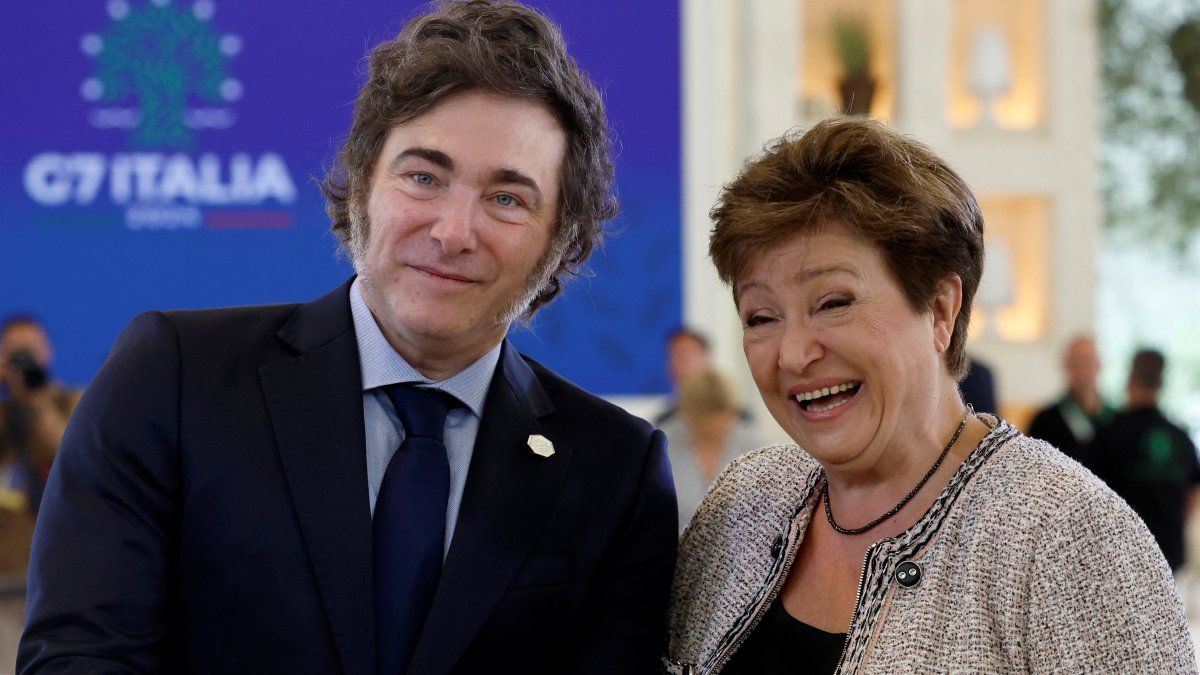The program between Argentina and the IMF at the end of the year, The Government could conceive the strategy of remaining without a program with the agency throughout 2025, to resume repayment of the loan – under the new conditions – in 2026. As he was able to confirm Scope, The IMF welcomes this strategy and is prepared to support this decision, subject to conditions.
This is, in fact, the conclusion that can be drawn from the numerous sources consulted in recent days among the interested parties. Sources say that Argentina has not yet requested to sit down to negotiate a new agreement with the IMF and that, according to the organization, it may not do so for a good part of next year..
The IMF and the 2025 elections: see you in 2026
There are at least three elements that strongly influence the decision-making system so that the organization is willing to endorse this decision: the first, President Javier Milei would not be in a position to make the necessary changes that the organization is asking for in exchange for “new money”, within the framework of the new program with the IMF, that Argentina should sign to refinance its debt with the institution led by Kristalina Georgieva.
According to what Ámbito was able to reconstruct, The Government informed the organization that the priority in the coming months will be to maintain inflation at levels considered “low” for the series that started with 25% monthly inflation in December 2023, which reached 4.2% in August and remains in the zone between 4 and 5%. The novelty is that the IMF looks favorably on this strategy and is willing to support it if, as it seems, the Casa Rosada maintains its commitment – empirically verifiable – to respect the zero deficit and aspire to make more significant and “better quality” changes in the structure of public spending.
Maintaining popular support: the key to necessary reforms
The IMF is aware that The Government needs popular support to arrive in good shape for the midterm elections. It is the second element. Doing so implies for the organization the chance that Javier Milei can do something fundamental: the fiscal reforms necessary for the zero deficit to be “sustainable” over time via its approval in Congress. It is the greatest concern, today, of the IMF: for that reason, In Washington they prefer and are willing to pay for a long informal conversation – without an agreement in sight – with Argentina, until reaching the new shore of the new program.
In this way, they think, President Milei could eventually go through 2025 without a new Extended Fund Facility (EFF), something that, if done, would force the Government to render accounts every three months, not easy in an election year. President Milei would thus aspire to close the next year with a new, more advantageous composition in Congress and an election whose result could, for the IMF, give him a “survival” in terms of fiscal reforms.
New money, and new “more advantageous” conditions for Argentina
Aside from the geopolitical issues – the fight with China, Argentina’s strategic location in that dispute and the supply of critical minerals – that today weigh heavily on the U.S. government’s agenda to support any proposal made by the IMF staff on an eventual agreement with Argentina, there is a third element that must be taken into account: According to what Ámbito was able to find out, there could be fresh money, as long as the Government commits to implementing the cuts and subscribes to the new program..
This program should be an Extended Fund Facility (EFF) – Washington thinks – due to the temporary extension that Argentina needs to repay its debt. However, in the event of an interregnum – the current program expires and a new program is not signed – Argentina could take on debt from a consortium of banks or using the BCRA gold sent to London, without consulting the IMF. That is, by not having a current program, Minister Luis Caputo could take on debt to meet his 2025 commitments and hope to reach the end of the year with negotiations underway that will allow him to enter 2026 with an injection of more money from the IMF.
A program that pays at least part of the debt
But there is something else, a small pearl, extremely important, that must be taken into account: In the organization, they imagine that Argentina’s new program with the IMF should not necessarily exhaust, in its structure, the repayment of the total loan. that Argentina still owes. This is relevant. The IMF understands that the new structure of the EFF program with Argentina should have at least two basic conditions, one of them, that Argentina can repay at least a minor part of the consolidated debt during the next program, and the second, that the country regains access to the international financial market to be able to refinance its debt. With these two conditions, partial payment and access to the market, they say in Washington, Argentina could sign a new program and obtain between US$12,000 and US$15,000 million additional, which should enable the possibility of lifting the exchange rate restriction at some point.
Cepo: I lend you money, you unify, and you continue with the zero deficit and the reforms
The exchange rate restriction is another key point in the framework of the relationship with the IMF. The organization believes that there is a kind of “trap” in which Minister Luis Caputo finds himself and which could be summarized in this double-entry equation: if the Government allows the financial dollar market to be supplied with dollars via the CCL dollar, it is likely that the gap with the official dollar will skyrocket and this will once again generate an inflationary rebound that will put pressure on public support for Javier Milei, which would eventually hit the chances of having a good electoral result and making the fiscal reforms that the organization is asking for to give “sustainability” to the zero deficit.
But if it continues selling dollars -as a result of the liquidation of exports-, the accumulation of reserves in the Central Bank becomes a chimera. The fact to keep in mind is that The organization is considering the possibility that Argentina will enter the next program with the IMF without lifting the restrictions and that the new disbursement will be the opportunity to undo this exchange restriction.. With reservations, the organization understands, it would be much easier to lift the exchange rate restriction. The novelty is that the IMF would be willing to consider this sequence, first the disbursement, then the exchange rate unification, if the Government offers a roadmap, a plan, that contemplates a commitment to a better quality fiscal balance – not a mere cut in the social security budget – and a “consistent” monetary and exchange rate plan, added to the quarterly review of the goals. But that would happen only at the end of 2025.
Source: Ambito




